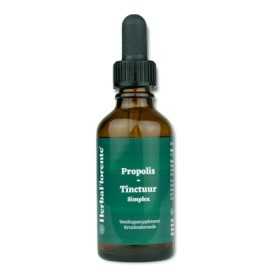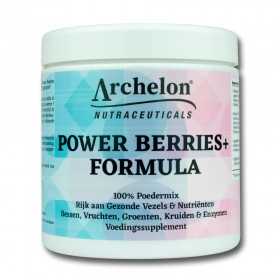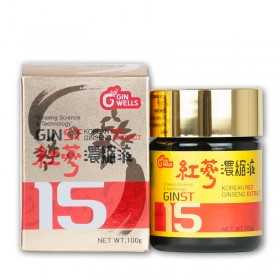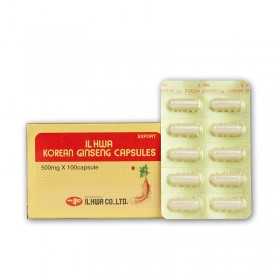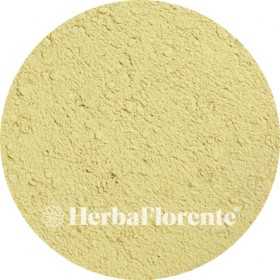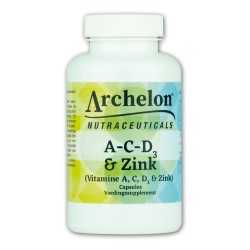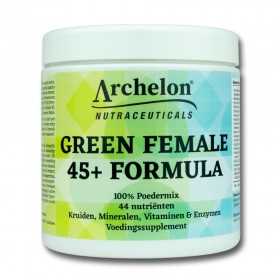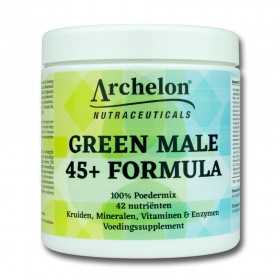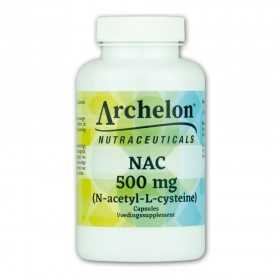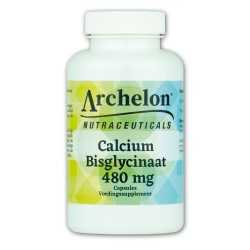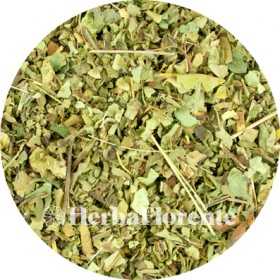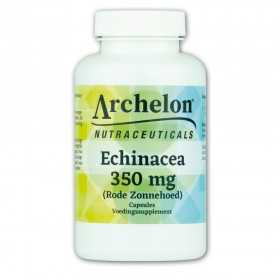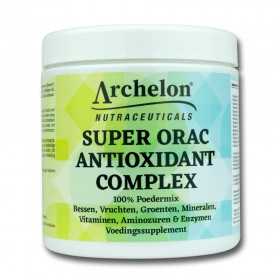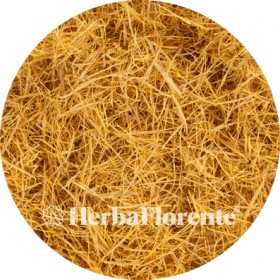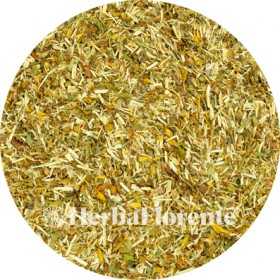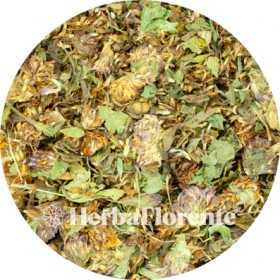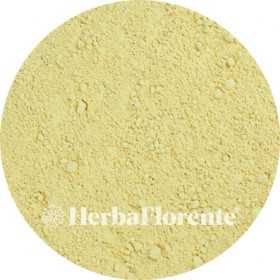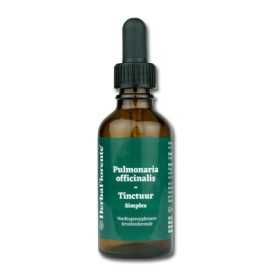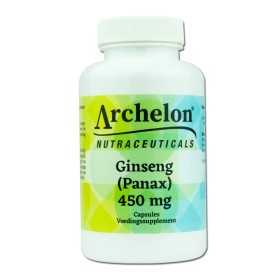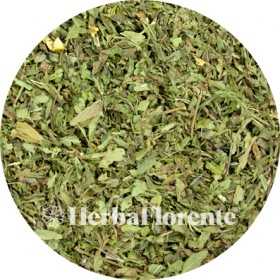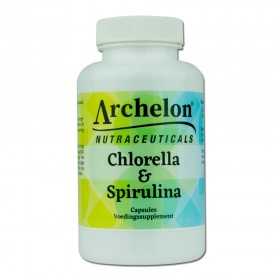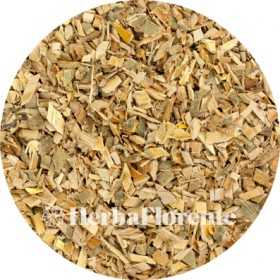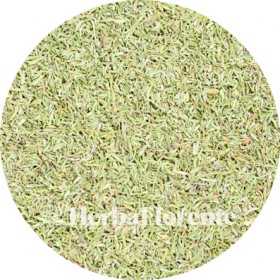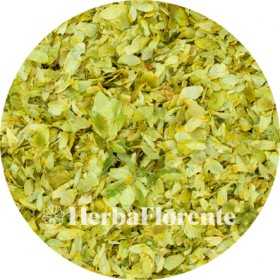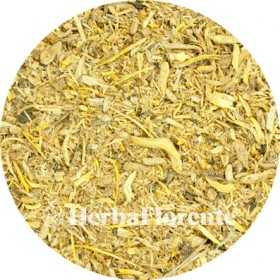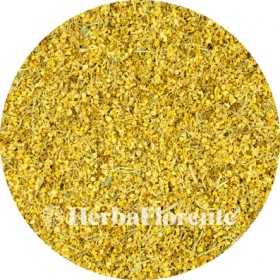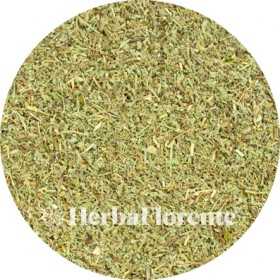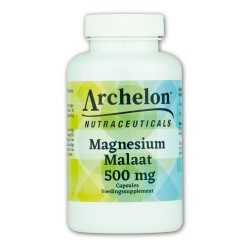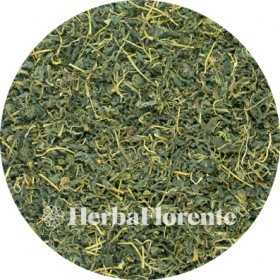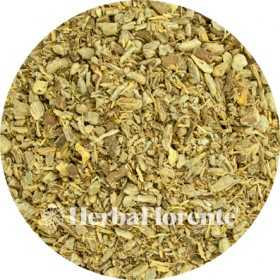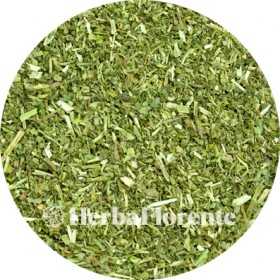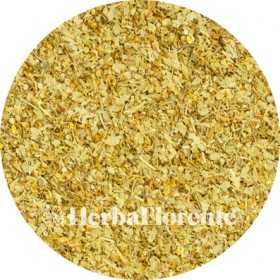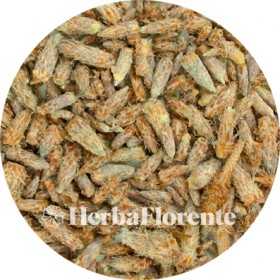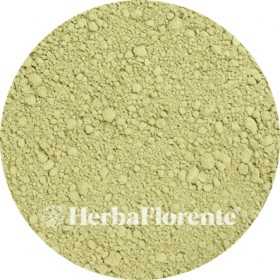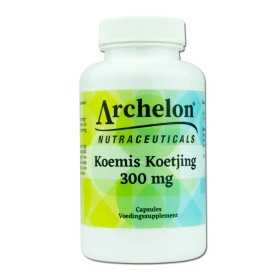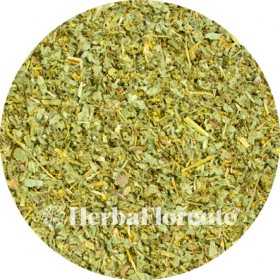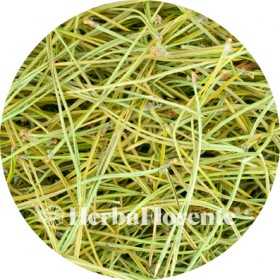Best sellers
There are 366 products.
St John's Wort - Hyperici perforatum
St. John's Wort (Hypericum perforatum) has had a positive reputation in European herbal medicine for centuries. It can be used to support both moments of depression and cheerfulness, and it promotes a good night's sleep. In addition, St. John's wort is beneficial for bile function and contributes to healthy digestion, thanks to the presence of bioflavonoids, tannins and essential oils.
The use of St. John's wort dates back to the times of the Ancient Greeks and is traditionally harvested between June 21 and 24, on the occasion of the Feast of St. John, in both pagan and Christian traditions.
The use of St. John's wort dates back to the times of the Ancient Greeks and is traditionally harvested between June 21 and 24, on the occasion of the Feast of St. John, in both pagan and Christian traditions.
€2.00
From: €2.00
Red Clover (Flower) - Trifolii Rubr. pratense - Whole
Red clover (Trifolium pratense) is a plant native to Europe and Central Asia. It is characterized by its compound leaves, which usually consist of three leaflets, and its light purple flower heads.
Red clover flower heads naturally contain various plant compounds, including isoflavones. Isoflavones belong to the polyphenol group and are part of the plant's natural composition. Red clover also contains vitamins such as vitamin C, B1, B2, B3, beta-carotene, and choline.
Red clover has a long history of use in various cultures and is now incorporated into a variety of herbal preparations, such as teas and other plant products.
Red clover flower heads naturally contain various plant compounds, including isoflavones. Isoflavones belong to the polyphenol group and are part of the plant's natural composition. Red clover also contains vitamins such as vitamin C, B1, B2, B3, beta-carotene, and choline.
Red clover has a long history of use in various cultures and is now incorporated into a variety of herbal preparations, such as teas and other plant products.
€2.80
From: €2.80
Bitterhout - Quassiae
Bitterwood, known in Suriname as kwasibita, is the heartwood of Quassia amara, a plant species in the Quassia genus, belonging to the Simaroubaceae family. The plant is native to tropical South America.
Quassia amara is a small, evergreen shrub found in regions including the Guyanas, northern Brazil, and Venezuela. The plant grows primarily in the rainforest understory. Its striking bright red flowers, which are primarily pollinated by hummingbirds, are a striking feature. Because of these decorative flowers, the plant is also cultivated outside its natural habitat as an ornamental.
Quassia amara is a small, evergreen shrub found in regions including the Guyanas, northern Brazil, and Venezuela. The plant grows primarily in the rainforest understory. Its striking bright red flowers, which are primarily pollinated by hummingbirds, are a striking feature. Because of these decorative flowers, the plant is also cultivated outside its natural habitat as an ornamental.
€2.80
From: €2.80
Lungwort Tincture - Pulmonaria officinalis Tinctuur
Single herbal tincture made with dried leaf of Pulmonaria officinalis (Lungwort).
Lungwort belongs to the genus Pulmonaria within the borage family (Boraginaceae). The botanical name is derived from the Latin word pulmo, meaning "lung." This name refers to the striking leaf markings of some species, such as spotted lungwort, which were once compared to the appearance of human lungs.
This association played an important role in the theory of signatures, a traditional doctrine in which it was believed that a plant's appearance provided clues to its intended use. Based on this line of thought, lungwort was historically used for conditions associated with the lungs.
Lungwort belongs to the genus Pulmonaria within the borage family (Boraginaceae). The botanical name is derived from the Latin word pulmo, meaning "lung." This name refers to the striking leaf markings of some species, such as spotted lungwort, which were once compared to the appearance of human lungs.
This association played an important role in the theory of signatures, a traditional doctrine in which it was believed that a plant's appearance provided clues to its intended use. Based on this line of thought, lungwort was historically used for conditions associated with the lungs.
€11.95
Ginseng (Panax) - 450 mg
Panax Ginseng is a slow-growing plant with a sturdy root, native to the mountainous regions of East Asia. This root has been used for thousands of years in traditional Chinese herbal practice and is considered one of the best-known and most researched ginseng varieties in the world. The name "Panax" comes from the Greek word "panacea," meaning "all-healer," and refers to the root's versatile uses in historical sources.
Panax Ginseng root contains a unique composition of bioactive compounds, the most characteristic of which are ginsenosides. These steroid-like compounds are found exclusively in true Panax Ginseng.
Panax Ginseng root contains a unique composition of bioactive compounds, the most characteristic of which are ginsenosides. These steroid-like compounds are found exclusively in true Panax Ginseng.
€42.95
Peppermint - Menthae piperita
Peppermint oil is extracted from the leaves of the peppermint plant (Mentha piperita), a cross between water mint (Mentha aquatica) and spearmint (Mentha spicata). Peppermint belongs to the Lamiaceae family, which also includes other aromatic herbs such as basil and rosemary.
The plant was recognized as a distinct species in England in the 17th century and has been widely cultivated ever since. Peppermint naturally contains several essential oils, including menthol, menthone, and cineole, which together contribute to its characteristic fresh scent and flavor.
Peppermint oil is used as an ingredient in a variety of products, such as peppermint candy, flavorings, and herbal preparations. The leaves of the peppermint plant are also traditionally made into tea.
The plant was recognized as a distinct species in England in the 17th century and has been widely cultivated ever since. Peppermint naturally contains several essential oils, including menthol, menthone, and cineole, which together contribute to its characteristic fresh scent and flavor.
Peppermint oil is used as an ingredient in a variety of products, such as peppermint candy, flavorings, and herbal preparations. The leaves of the peppermint plant are also traditionally made into tea.
€2.00
From: €2.00
Heartwort - Leonurus cardiaca
Heartwort (Leonurus cardiaca) is a fragrant perennial plant that belongs to the Lamiaceae family. Originating in Central Asia, this plant has spread throughout the world.
The leaves are suitable for seasoning pea and lentil soup, and were also used in the past to brew beer.
The plant grows to a height of 30-90 cm and forms rhizomes and square stems with scattered hairs. The leaves, which are medium green in color, have three to seven lobes and are downy hairy on the underside.
The leaves are suitable for seasoning pea and lentil soup, and were also used in the past to brew beer.
The plant grows to a height of 30-90 cm and forms rhizomes and square stems with scattered hairs. The leaves, which are medium green in color, have three to seven lobes and are downy hairy on the underside.
€2.00
From: €2.00
Chlorella 200 mg & Spirulina 200 mg
This dietary supplement combines chlorella and spirulina, two single-celled algae naturally rich in nutrients such as protein, vitamins, and minerals. Together, they form a natural source of diverse nutrients and can be included as part of a varied and balanced diet.
€19.95
Willow - Salicis alba
The white willow (Salix alba), also known as the "white willow" in English, is a common tree in the Netherlands. The bark of the willow naturally contains salicin, a glycoside identified as early as 1828 by the German pharmacist Johann Andreas Buchner.
The white willow is valued for its long history of use and is botanically interesting for its characteristic leaves and growth habit.
The white willow is valued for its long history of use and is botanically interesting for its characteristic leaves and growth habit.
€2.00
From: €2.00
Thyme - Thymii vulgaris - Cut
Thyme is a herb valued in both cooking and traditional applications. It is recognizable by its distinctive aroma and can be used in teas, spice blends, syrups, or as a seasoning in dishes.
Thyme grows naturally in Europe, Asia, and Africa, forming hardy shrubs approximately 40 centimeters tall. The herb thrives in dry and stony soils. Both the leaves and flowers of thyme contain various plant compounds, including essential oils and flavonoids.
Thyme was used by the Greeks and Romans since ancient times, primarily for its aroma and culinary uses. Today, thyme is still valued for its fragrance and flavor.
Thyme grows naturally in Europe, Asia, and Africa, forming hardy shrubs approximately 40 centimeters tall. The herb thrives in dry and stony soils. Both the leaves and flowers of thyme contain various plant compounds, including essential oils and flavonoids.
Thyme was used by the Greeks and Romans since ancient times, primarily for its aroma and culinary uses. Today, thyme is still valued for its fragrance and flavor.
€2.20
From: €2.20
Hop - Humulus lupulus
Hops (Humulus lupulus) are a hardy, perennial climbing plant belonging to the hemp family (Cannabaceae). The name lupulus may be derived from the Latin word lupus (wolf), which refers to the way the plant twines itself around other plants.
Hops have a long cultural history. The plant was already valued by the ancient Babylonians and Egyptians for its aromatic properties. Later, hops became a staple ingredient in beer production, where they continue to play an important role today due to their characteristic flavor and aroma. Hops were also frequently described in herbals and other historical sources during the Middle Ages.
Hops have a long cultural history. The plant was already valued by the ancient Babylonians and Egyptians for its aromatic properties. Later, hops became a staple ingredient in beer production, where they continue to play an important role today due to their characteristic flavor and aroma. Hops were also frequently described in herbals and other historical sources during the Middle Ages.
€2.95
From: €2.95
Angelica - Angelica angelicae
The great angelica, also known as archangelica, belongs to the Apiaceae family. The plant grows naturally in moist, nutrient-rich soil along waterfronts, such as those near Lake IJssel, riverbanks, and willow groves, and is also cultivated in gardens.
The plant is traditionally cultivated in various regions, from central Germany to Turkestan. An aromatic oil, known as angelica oil, is extracted from the seeds and roots and is used in cosmetics, baking, and distilling. The stems and petioles can be candied for their sweet and fragrant flavor.
The plant is traditionally cultivated in various regions, from central Germany to Turkestan. An aromatic oil, known as angelica oil, is extracted from the seeds and roots and is used in cosmetics, baking, and distilling. The stems and petioles can be candied for their sweet and fragrant flavor.
€2.60
From: €2.60
Elder - Sambuci nigri
The elderberry (Sambucus nigra L.) is a native tree or shrub that grows widely in the Netherlands. It grows in a variety of locations, such as along roads, in forest edges, and in gardens.
At the end of May, the elderberry blooms with large umbels of small, creamy-white flowers that exude a sweet, floral fragrance. These blossoms are traditionally used to make elderflower liqueur, syrup, and pancakes, among other things.
The flowers contain various natural plant compounds, including flavonoids such as rutin, quercetin, and astragalin. They also contain tannins, triterpenes, fatty acids, and essential oils.
At the end of May, the elderberry blooms with large umbels of small, creamy-white flowers that exude a sweet, floral fragrance. These blossoms are traditionally used to make elderflower liqueur, syrup, and pancakes, among other things.
The flowers contain various natural plant compounds, including flavonoids such as rutin, quercetin, and astragalin. They also contain tannins, triterpenes, fatty acids, and essential oils.
€3.60
From: €3.60
Smooth rupturewort - Herniaria glabra
Breechwort (Herniaria glabra) is a low-growing herbaceous plant in the carnation family (Caryophyllaceae). The plant can be annual, biennial, or perennial and typically blooms from June to October. Its modest size and growth habit make it particularly noticeable in dry, open areas.
The plant is native to parts of Europe and prefers sandy, poor soil. Its creeping habit and small, greenish flowers often make it inconspicuous in the landscape.
Historical Context
The Dutch name "breukruid" refers to the plant's use in earlier times. Historical herbals and folklore sources mention "breechwort" in connection with traditional uses. These names and descriptions reflect the thinking and customs of the time.
The plant is native to parts of Europe and prefers sandy, poor soil. Its creeping habit and small, greenish flowers often make it inconspicuous in the landscape.
Historical Context
The Dutch name "breukruid" refers to the plant's use in earlier times. Historical herbals and folklore sources mention "breechwort" in connection with traditional uses. These names and descriptions reflect the thinking and customs of the time.
€2.00
From: €2.00
Magnesium Malate - 500 mg
Magnesium malate is an organic form of magnesium bound to malic acid (malate). This compound is widely used in dietary supplements due to its chemical stability and composition. Malic acid is a substance naturally found in fruits and plays a role in various biochemical processes.
Magnesium is an essential mineral found in all cells of the body. It contributes to normal energy-yielding metabolism and supports the normal functioning of muscles and the nervous system. Magnesium also contributes to proper electrolyte balance and normal protein synthesis. The mineral also plays a role in normal psychological function and normal cell division.
Magnesium is an essential mineral found in all cells of the body. It contributes to normal energy-yielding metabolism and supports the normal functioning of muscles and the nervous system. Magnesium also contributes to proper electrolyte balance and normal protein synthesis. The mineral also plays a role in normal psychological function and normal cell division.
€25.95
Jiaogulan - Gynostemma pentaphyllum
Gynostemma pentaphyllum, also known as jiaogulan, is a climbing vine native to Japan, Southeast China, and Thailand. In the Netherlands, this plant is known as "immortality herb" or "everlasting life herb."
The herb is traditionally used in Chinese culture and contains various plant compounds, including antioxidants. Gynostemma pentaphyllum is often used in teas or supplements due to its rich composition of natural substances.
The herb is traditionally used in Chinese culture and contains various plant compounds, including antioxidants. Gynostemma pentaphyllum is often used in teas or supplements due to its rich composition of natural substances.
€5.75
From: €5.75
Echinacea (Coneflower) (Root) - Echinaceae purp.
The purple coneflower (Echinacea purpurea) is a perennial plant belonging to the Asteraceae family. The genus name Echinacea is derived from the Greek word echinos, meaning "hedgehog," and refers to the spiky flower cone that characterizes this plant.
Echinacea purpurea is native to North America and is now cultivated worldwide. The plant has striking purplish-pink flowers and is valued for its ornamental appearance and botanical properties. Since the early twentieth century, there has been considerable interest in this species in Europe, leading to extensive botanical and historical research.
Echinacea purpurea is native to North America and is now cultivated worldwide. The plant has striking purplish-pink flowers and is valued for its ornamental appearance and botanical properties. Since the early twentieth century, there has been considerable interest in this species in Europe, leading to extensive botanical and historical research.
€3.00
From: €3.00
Catnip - Nepetae catariae
Wild catnip (Nepeta cataria) belongs to a genus of 250 species in the family Lamiaceae. The genus is closely related to Glechoma, Stachys and Prunella. This genus originally occurs in Europe and Asia. The stems grow in nodes and often form dense carpets on the ground. The leaves are coarsely toothed and feel soft because of the hairs. The erect stems bear small, tubular flowers in pairs that are located in the axils of the leaves.
€2.20
From: €2.20
Lime tree Blossom - Tiliae officinalis
The lime tree (Tilia) is native to the Benelux and is known for its remarkable lifespan, which can easily exceed 1000 years. This majestic tree can reach a height of 20 to 30 meters, depending on its growing conditions. The Latin name for the lime tree is Tilia.
Although the lime tree is widespread in Europe, it is not found in the northernmost and southernmost parts of the continent. Outside Europe, the lime is also found in parts of Asia, but to a much lesser extent.
The tree blooms in the months of June and July. The lime blossom produces a lot of honey, and the flowers can be used to make herbal tea.
Although the lime tree is widespread in Europe, it is not found in the northernmost and southernmost parts of the continent. Outside Europe, the lime is also found in parts of Asia, but to a much lesser extent.
The tree blooms in the months of June and July. The lime blossom produces a lot of honey, and the flowers can be used to make herbal tea.
€5.00
From: €5.00
Pine (Seedlings) - Pinus silvestris
The Scots pine (Pinus sylvestris) belongs to the pine family (Pinaceae) and can reach an age of 200 to 300 years. This tree is known for its rich resin content and characteristic pine scent.
The needles and buds of the Scots pine contain natural compounds such as tannins, flavonoids, and vitamins. The tree's resin contains turpentine and a large number of monoterpenes, including α-pinene, β-pinene, and limonene, which are components of the tree's essential oil.
Scots pine is traditionally used in various applications, such as in aromatic products and in the production of pine oil. Both needles and buds are used in some traditional preparations for their fragrance and flavor.
The needles and buds of the Scots pine contain natural compounds such as tannins, flavonoids, and vitamins. The tree's resin contains turpentine and a large number of monoterpenes, including α-pinene, β-pinene, and limonene, which are components of the tree's essential oil.
Scots pine is traditionally used in various applications, such as in aromatic products and in the production of pine oil. Both needles and buds are used in some traditional preparations for their fragrance and flavor.
€2.80
From: €2.80
Algae (Clubweed) - Ascophyllum nodosum
Ascophyllum nodosum, better known as clubweed, is a type of brown algae characterized by the presence of small blisters with slimy contents on the stems, in which the reproductive organs are located. These stems also contain large, gas-filled tubercles that help the plant stand upright under water. Knotweed varies in color from olive green to golden brown. The thallus can reach a length of 30 to 60 cm and is flexible, so that it can sway with the powerful movements of the water.
€2.00
From: €2.00
Cat's whiskers - Koemis Koetjing - 300 mg
Cat's whiskers (Orthosiphon aristatus), also known as Kumis Kutjing or koemis koetjing, is a plant traditionally used in various herbal cultures in Southeast Asia. The plant belongs to the Lamiaceae family and grows naturally in tropical and subtropical regions, particularly in countries such as Malaysia and Indonesia (Java). Orthosiphon aristatus is particularly prevalent in moist habitats such as riverbanks, wetlands, and swampy areas.
The Dutch name "kattensnor" (cat's whiskers) refers to the striking appearance of the flowers. These are white to light purple in color and have long, thread-like stamens that can resemble a cat's whiskers.
The Dutch name "kattensnor" (cat's whiskers) refers to the striking appearance of the flowers. These are white to light purple in color and have long, thread-like stamens that can resemble a cat's whiskers.
€19.95
Lady's Mantle - Alchemilla vulgaris
Lady's mantle (Alchemilla vulgaris) belongs to a genus of approximately one thousand species of perennial herbaceous and shrubby plants within the rose family (Rosaceae). The plant is primarily found in Europe and Asia, with some species in mountainous regions of Africa and North and South America. It prefers to grow in damp and disturbed places, such as forest edges, wet grasslands, and roadsides.
€2.50
From: €2.50
Pine (Needles) - Pinus silvestris
The Scots pine (Pinus sylvestris) belongs to the pine family (Pinaceae) and can reach an age of 200 to 300 years. This tree is known for its rich resin content and characteristic pine scent.
The needles and buds of the Scots pine contain natural compounds such as tannins, flavonoids, and vitamins. The tree's resin contains turpentine and a large number of monoterpenes, including α-pinene, β-pinene, and limonene, which are components of the tree's essential oil.
Scots pine is traditionally used in various applications, such as in aromatic products and in the production of pine oil. Both needles and buds are used in some traditional preparations for their fragrance and flavor.
The needles and buds of the Scots pine contain natural compounds such as tannins, flavonoids, and vitamins. The tree's resin contains turpentine and a large number of monoterpenes, including α-pinene, β-pinene, and limonene, which are components of the tree's essential oil.
Scots pine is traditionally used in various applications, such as in aromatic products and in the production of pine oil. Both needles and buds are used in some traditional preparations for their fragrance and flavor.
€2.00
From: €2.00

